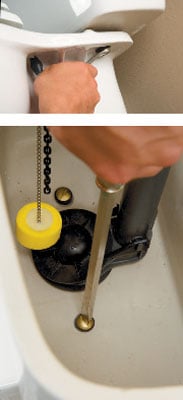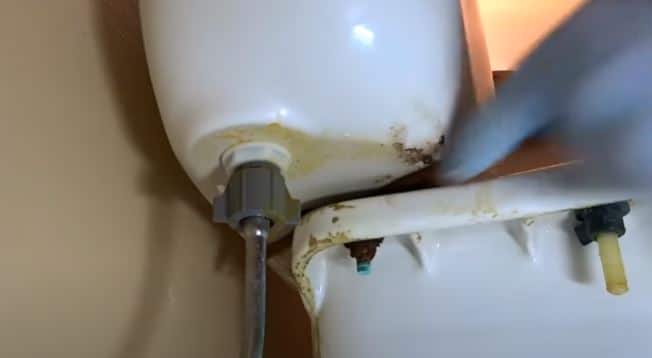5 Standard Water Leak Origins
5 Standard Water Leak Origins
Blog Article
What are your ideas regarding Reasons for Water Heater Leaks?

"Be cautious of little costs. A small leakage will sink a fantastic ship." - Benjamin Franklin.
He could not have actually been a lot more appropriate since water leaks in our homes cause a waste of resources, boosting our water expenses. Although this rise could appear negligible at first, it can bring about significant expenses that can break your bank. Besides a boost in expenses, water leaks also cause unwanted organic development, architectural damages, and also also electric threats.
Figuring out if you have a water leak isn't constantly very easy because of being unable to see most of the pipework in your house. If you have had a boost in your water costs lately, discovered water stains on wall surfaces as well as ceilings, scented poor odor, and so on. You might wish to take into consideration asking for plumbing solutions to get it looked into.
There are numerous causes of water leaks, and we have actually assembled the common reasons below. Examine to see if you have actually had relevant problems in your home recently.
Clogged drains
Food particles, dirt, and oil can trigger blocked drains pipes and block the passage of water in and out of your sink. Boosted pressure within the rain gutters can finish and also create an overflow up splitting or breaking pipes if undealt with. To stay clear of clogged drains in your house, we suggest you to prevent pouring fragments down the drain and normal cleansing of sinks.
High water pressure
You saw your house water stress is more than usual however then, why should you care? It's out of your control.
It would certainly be best if you cared because your average water pressure must be 60 Psi (per square inch) as well as although your house's plumbing system is designed to stand up to 80 Psi. A rise in water stress can place a stress on your house pipelines as well as result in cracks, or even worse, burst pipelines. If you ever see that your house water stress is higher than common, contact a specialist about managing it.
Rust
As your pipework gets older, it gets weaker and much more vulnerable to rust after the regular flow of water via them, which can eat away at pipes as well as trigger splits. A noticeable indication of deterioration in your house plumbing system is staining as well as although this could be tough to find because of the majority of pipelines hidden away. We suggest doing a frequent checkup every couple of years and also alter pipes once they are old to ensure an audio plumbing system
Damaged pipe joints
Pipeline joints are the parts of our plumbing system where the pipes attach. They are the weakest factor of our plumbing system. Because of this, they are extra vulnerable to wear and tear. It is important to note that even though pipes are developed to endure pressure and last for a while, they weren't designed to last permanently; consequently, they would degrade with time. This wear and tear might bring about splits in plumbing systems. An usual indicator of damaged pipe joints is too much sound from faucets.
Damaged seals
Another source of water leaks in residences is broken seals of house devices that make use of water, e.g., a dishwasher. When such appliances are set up, seals are set up around water ports for very easy passage of water via the device. A broken seal can trigger leak of water when in use.
With little or no understanding of plumbing, comprehending your house's plumbing system enough to repair a few of these concerns (without repercussion) can be a hassle. Contact plumbing specialists in Pittsburgh, Providence, Rochester, as well as environ today, and also they'll make those concerns disappear.
He could not have actually been extra appropriate due to the fact that water leaks in our homes result in a waste of sources, raising our water costs. If you have had a boost in your water bills recently, saw water spots on ceilings as well as wall surfaces, scented poor odor, and so on. A boost in water stress can put a pressure on your home pipelines as well as lead to splits, or worse, ruptured pipelines. One more reason of water leakages in houses is damaged seals of home appliances that utilize water, e.g., a dish washer. When such devices are installed, seals are installed around water connectors for easy passage of water with the maker.
5 TIPS IN DETECTING A WATER LEAK IN YOUR HOUSE
Water leaks can be hard to find in your home, yet they can be so common. We rely on water every day in our home, which is why a leak can cause big problems. By detecting them early, you can save money and further damage, getting the problem fixed as soon as possible. Here are 5 tips to help you detect a water leak in your home, so you can contact a plumber straight away and get the issue sorted.
Check your water meter
Many people underestimate the value of the water meter in their home. It can be one of the best ways to tell if you have a leak early on, so you can get on top of it before issues start arising. Start by turning off all the water in your home: taps, washing machine, dishwasher, etc. Now take a look at the meter – if it’s still changing with everything turned off, it’s likely you have a fast-flowing leak that you need to get on top of straight away. If nothing changes, then leave your meter for an hour or two and come back to it. Did it change in this time? It’s likely you have a slower leak, which isn’t as urgent but still handy to get fixed so it doesn’t become a bigger problem.
Keep an eye on your bill
Another good way to detect a leak in your home is by keeping an eye on your water bill. It helps if you have a past bill from the same period of time. You can compare like for like and determine whether your water usage has increased significantly. If it has, there may be a leak in your system that you haven’t picked up before. A professional plumber can check through all of your pipes and determine where it is coming from.
Look for damage
If you have a leak inside your home, you will notice damage over time. Take a look at your showers and bathtubs and note whether any of the tiles surrounding the area seem to be discoloured or damaged in any way. There may be water stains, mould or peeling material that has resulted from a build up of moisture over time. Make sure you take a look under sinks at the back of cupboards that don’t get accessed regularly. This is where damage can go unnoticed and build up over periods of time.

We were brought to that report about Common Causes of Water Leaks in the Home from a good friend on another web address. Do you know about somebody else who is very much interested in the topic? Why not share it. Thanks so much for your time invested reading it.
Call us now! Report this page